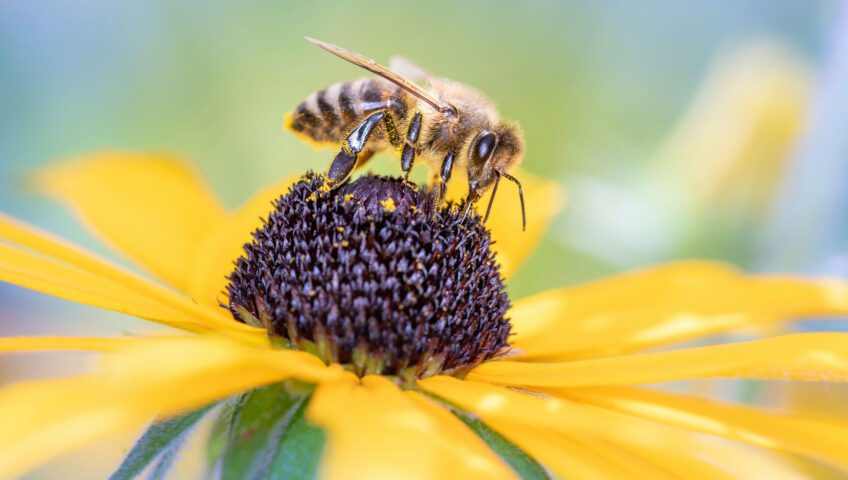Honey bees play a crucial role in our ecosystem that extends far beyond producing honey. These industrious pollinators contribute significantly to the growth of fruits, vegetables and flowers, making them an essential part of our food chain.
The alarming decline in global honey bee populations has raised concerns about the potential consequences for our environment and food supply. In your own backyard, the importance of protecting honey bees can hardly be overstated.
The pollination connection
Honey bees are champion pollinators, facilitating the reproduction of countless plant species by transferring pollen from male to female flowers. This process is fundamental to the production of fruits and seeds, ensuring the survival of many plants and the animals that depend on them. From apples to almonds, the fruits of their labor are evident in the diverse array of crops that grace our tables.
Food for thought
Imagine a world without honey bees: no apples for your pie, no blueberries for your morning smoothie and no almonds for a guilt-free snack. The depletion of honey bee populations could lead to a domino effect, disrupting the delicate balance of our food supply. By refraining from using harmful pesticides and avoiding the destruction of hives, you play a vital role in preserving the abundance and variety of foods we often take for granted.
Biodiversity boost
Beyond their role in agriculture, honey bees contribute to the overall biodiversity of your yard. A diverse ecosystem is a resilient one, and by allowing honey bees to thrive, you’re creating an environment that supports a variety of plant and animal species. As pollinators, honey bees ensure the health of flowering plants, which, in turn, sustains other organisms in the food web. It’s a harmonious cycle that relies on the presence of these important creatures.
Environmental stewardship
Being a responsible custodian of your yard involves understanding the interconnectedness of all living things. Rather than resorting to harmful pesticides that can endanger not only honey bees but also other beneficial insects, consider adopting bee-friendly practices. Choose natural alternatives, plant bee-friendly flowers and create a welcoming environment for these essential pollinators.
Your yard can become a haven for biodiversity, demonstrating the power of individual actions in the face of environmental challenges.
